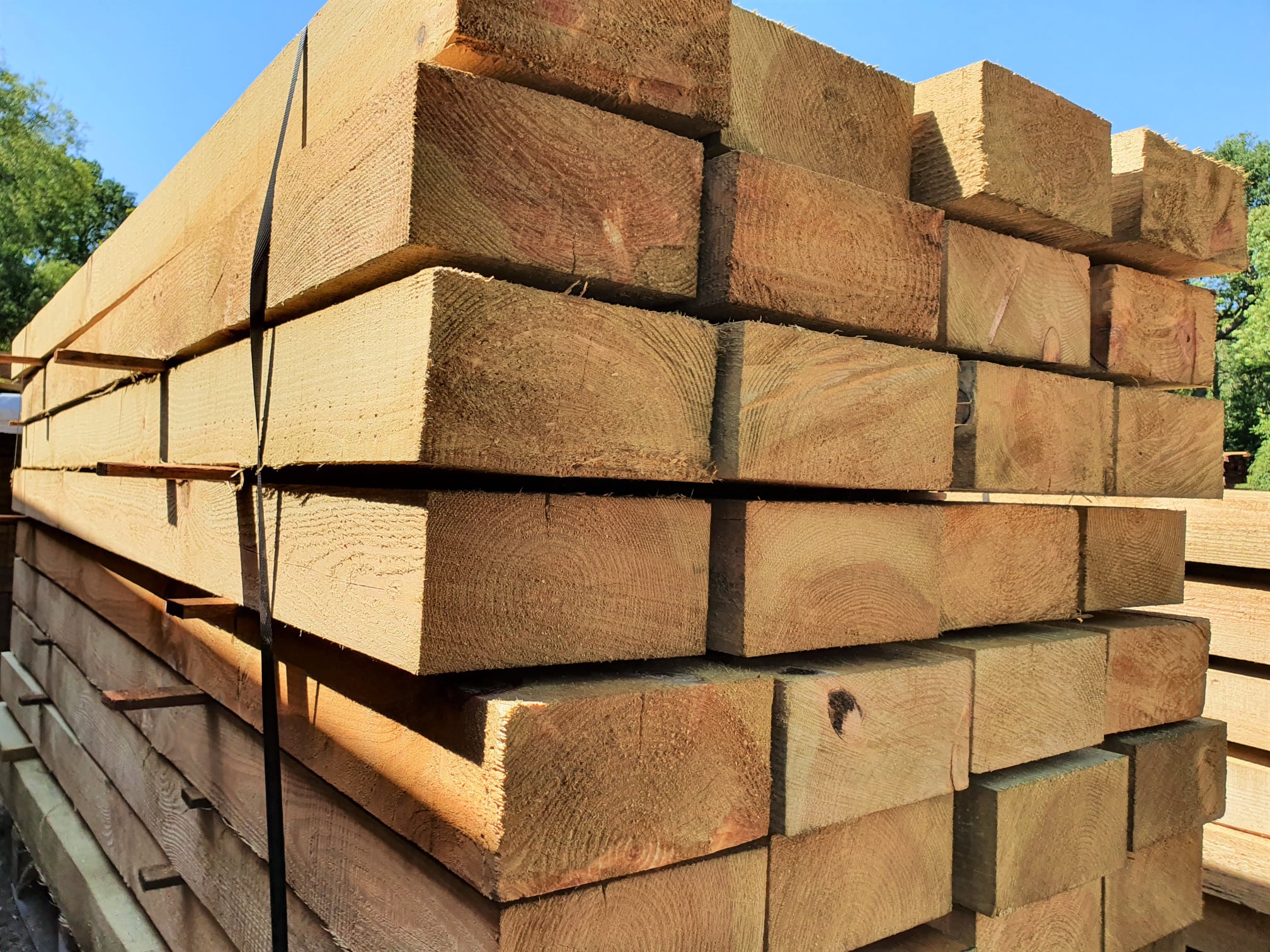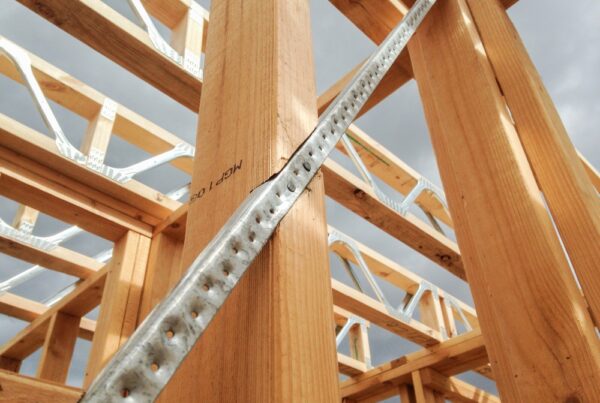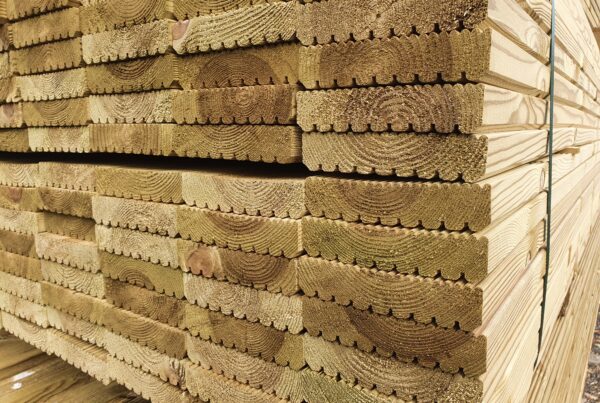When it comes to choosing timber for your project, understanding the grading system is essential. Timber grading ensures that you select the right material for the job, balancing strength, durability, and cost. At Timber Pro, we specialise in providing high-quality C16 and C24 graded timber products to support construction projects across Lincoln and beyond. Whether you’re building a home, creating furniture, or working on outdoor structures, we’re here to guide you through every step.
Established as a trusted timber supplier, the team at Timber Pro is committed to delivering materials that meet stringent industry standards. Our team prides itself on offering personalised service, ensuring that customers find the perfect timber for their unique needs. In this blog, we’ll explore the essential details of timber grading, focusing on C16 and C24 grades, to help you make informed decisions for your project. Ready to get started with your project? Contact us today!
A Guide to Timber Grading: What C16 & C24 Grades Mean for Your Project
Timber grading plays a critical role in construction, categorising wood based on its strength, density, and suitability for specific applications. In the UK, C16 and C24 are the most commonly used timber grades, each serving distinct purposes. Let’s delve into each type…
What is C16 Grading?
C16 timber is a grade commonly used for general construction purposes. It is derived from softwood species such as spruce and pine, offering a reliable and cost-effective solution for projects that don’t require extremely high strength.
- Strength & Durability
C16 timber has moderate strength, making it suitable for applications like roofing, flooring, and framing where the load isn’t excessively heavy. Its ability to handle these types of loads efficiently makes it a practical choice for residential construction and smaller commercial projects
- Appearance
It often features knots and other natural imperfections, which do not compromise its functionality but may impact aesthetics. These natural characteristics give C16 timber a rustic look, making it suitable for projects where the wood will be concealed or used in less visible areas.
- Cost-Effectiveness
As a more affordable option, C16 is ideal for budget-conscious projects without compromising structural integrity. This affordability makes it a preferred choice for large-scale projects where cost management is a priority.
- Moisture Content
Proper treatment ensures C16 timber resists moisture and pests, increasing its lifespan. This treatment also enhances its usability in various environments, making it adaptable for indoor and outdoor applications with appropriate care.
What is C24 Grading?
C24 timber is a higher grade than C16, offering superior strength and durability. It is often sourced from slower-growing softwoods like Douglas fir and European redwood, which have tighter grain patterns.
- Strength & Versatility
With greater load-bearing capacity, C24 timber is ideal for structural applications such as beams, joists, and heavy-duty flooring. Its high strength-to-weight ratio allows architects and builders to achieve ambitious designs without compromising on safety or stability.
- Appearance
C24 timber has fewer knots and a more uniform finish, making it suitable for exposed applications where aesthetics matter. This makes it a popular choice for visible structural elements, such as feature beams in open-plan spaces or decorative frameworks.
- Long-Term Durability
Treated C24 timber is highly resistant to environmental factors, ensuring longevity even in demanding conditions. Its resilience against wear and tear makes it a dependable choice for projects that require materials to withstand harsh climates or heavy usage.
- Applications
It’s the go-to choice for projects that require a balance of strength, stability, and visual appeal. From residential loft conversions to large-scale commercial buildings, C24 timber’s versatility ensures it meets the demands of various construction needs.
Why Timber Grading Matters
Grading timber ensures consistency and safety in construction. Using the correct grade prevents structural failures, reduces waste, and improves project efficiency. Whether you’re constructing a garden shed or a multi-storey building, understanding timber grades like C16 and C24 is critical for success. By selecting the right grade, builders can optimise both performance and cost-effectiveness, ensuring that materials meet the specific demands of a project. This not only enhances the durability and reliability of the structure but also supports compliance with building regulations and standards. Timber grading provides the assurance that the wood will perform as expected, no matter the application. Get in touch with Timber Pro today for more information!
The Benefits of C16 & C24 Timber
Choosing the right timber grade can make all the difference in the success of your project. C16 and C24 timber each bring distinct advantages that cater to various needs. Selecting the appropriate grade not only ensures structural integrity but also helps optimise costs and environmental impact, making them essential choices for both small and large-scale projects.
- Cost-Effectiveness
C16 timber is a budget-friendly option, providing adequate strength for many applications. It’s an excellent choice for smaller projects or those with tighter financial constraints. Additionally, it’s widely available, making it accessible for various construction needs without delays. On the other hand, C24 timber offers greater value for money in high-stress applications due to its enhanced durability and longevity, reducing long-term maintenance costs. Its ability to withstand heavier loads means fewer replacements over time, further driving down expenses.
- Versatility
Both grades are versatile, with C16 suitable for non-structural elements like battens and light-duty frameworks, while C24 excels in load-bearing applications. This flexibility ensures you can tailor your choice to your specific project needs without compromising quality. Moreover, their adaptability allows them to be used in a range of settings, from residential properties to commercial buildings, offering builders and architects ample design options.
- Environmental Sustainability
Using graded timber supports sustainable practices, as it maximises the efficiency of harvested wood. Both C16 and C24 timber can be sourced from responsibly managed forests, contributing to eco-friendly construction. Treated options also extend the lifespan of the timber, further reducing environmental impact. By choosing sustainably sourced timber, you actively participate in reducing deforestation and promoting renewable resources.
- Ease of Use
Timber is inherently easy to work with, and graded timber adds an extra layer of predictability. Whether you’re cutting, drilling, or shaping it, knowing the grade ensures that the timber will perform as expected, streamlining your workflow. This reliability minimises waste during construction, saving both time and resources. Additionally, the uniformity of graded timber simplifies the building process, even for intricate designs.
- Professional Appearance
For projects where aesthetics are key, C24 timber’s smoother finish and fewer knots make it a standout choice. This makes it suitable for exposed beams, decking, and other visible elements that require a polished look. Its visual appeal enhances the overall quality of a build, providing a modern and refined appearance. Meanwhile, C16 timber’s rustic charm can complement projects where a natural look is desired.
Incorporating C16 and C24 timber into your project allows you to balance cost, strength, and visual appeal effectively. By understanding the unique benefits of each grade, you can make informed decisions that enhance the quality and durability of your work. Whether you’re prioritising budget or performance, these timber grades offer solutions that meet a wide range of construction needs while supporting sustainable and efficient practices.
In Conclusion: Building Smarter with Timber Grading
Timber grading is not just a technical detail, it serves as the backbone of safe, efficient, and long-lasting construction. The grade of timber you select for your project determines its strength, stability, and suitability for specific tasks. Whether you’re constructing small residential decking or a large commercial building, choosing the appropriate timber grade is essential to ensuring the structural integrity of your work. A poor timber choice can result in safety concerns, added costs, and compromised aesthetics, whereas the right grade guarantees a well-built, enduring foundation.
At Timber Pro, we understand the importance of making informed timber choices. With our wide range of premium C16 and C24 timber, we ensure that you have access to high-quality materials suited for a variety of applications, from structural frameworks to finishings. Our team is dedicated to helping you navigate the complexities of timber grading, guiding you to select the most suitable grade for your unique needs. With expert advice and superior products, we aim to provide you with peace of mind, knowing that your materials are reliable and long-lasting.
Whether you’re a DIY enthusiast looking to create a beautiful and functional space or a professional builder managing a large-scale construction project, the right timber grade can significantly impact the success of your work. At Timber Pro, we’re here to help you make these crucial decisions with confidence. Our commitment to sustainable practices means you can also be assured that the timber you use is responsibly sourced, contributing to eco-friendly construction.
By coming to Timber Pro, you gain access to a wealth of knowledge, premium materials, and tailored advice that can elevate your project from good to exceptional. Let’s build smarter, stronger, and more sustainably together. With the right timber grading, we can create structures that stand the test of time, delivering both function and beauty for generations to come. Contact us today!
FAQ: Timber Grading Explained
What is timber grading?
Timber grading categorises wood based on its strength, density, and suitability for specific applications, ensuring safety and efficiency in construction.
What does C16 mean?
C16 is a timber grade indicating moderate strength, ideal for general construction tasks like roofing and light framing.
What does C24 mean?
C24 is a higher-grade timber with superior strength and durability, suitable for structural and load-bearing applications.
How is timber graded?
Timber is graded through visual inspection or machine testing, assessing factors like knots, grain structure, and density.
Is C24 better than C16?
C24 is stronger and more durable than C16 but also more expensive. The choice depends on the project requirements.
Can C16 and C24 timber be used interchangeably?
In some cases, they can, but using the right grade for the specific application is crucial to ensure safety and performance.
What are the common uses for C16 timber?
C16 is commonly used for roofing, flooring, and light framing in non-structural applications.
What are the common uses for C24 timber?
C24 is used in beams, joists, heavy-duty flooring, and exposed architectural elements.
Is graded timber more expensive?
Graded timber can be more expensive due to the testing process, but it offers better performance and safety, making it a worthwhile investment.
Where can I buy C16 and C24 timber?
You can purchase high-quality C16 and C24 timber from trusted suppliers like Timber Pro, who offer expert guidance and premium materials.
Ready to Start Your Project?
Choosing the right timber is the first step to a successful build. Contact Timber Pro today to explore our range of C16 and C24 timber, or visit our website for more information. Let us help you bring your project to life with premium materials and unparalleled support.




